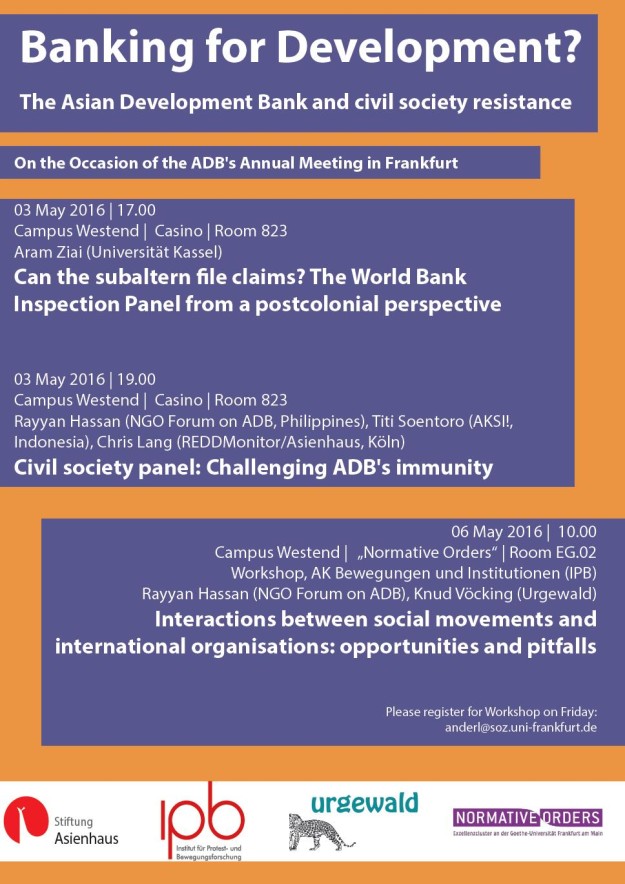On June 7/8 2018, an international workshop at the Cluster of Excellence “Normative Orders”, organized by Felix Anderl, Christopher Daase, Nicole Deitelhoff, Viktor Kempf, Jannik Pfister and Philip Wallmeier, will bring together a variety of perspectives from International Relations and Contentious Politics to discuss the relationship of rule and resistance in times of transnationalization. Titled “The Transnationalization of Rule and Resistance”, the workshop will be organized along three types of resistance beyond the nation-state: contestation, escalation, and exit, and feature the following presentations (download the program as PDF):
June 7
Felix Anderl/ Christopher Daase/ Nicole Deitelhoff/ Viktor Kempf/ Jannik Pfister/ Philip Wallmeier (Frankfurt)
“The Transnationalization of Rule and Resistance: Contestation, Escalation, Exit”
Susan Park (Sydney)
“Contesting International Development by Advocating for Citizen Driven Accountability for the Multilateral Development Banks”
Ben Kamis & Martin Schmetz (Frankfurt)
“The last Refuge of the Scoundrel: Comparing Ecuadorian and Russian Harbouring of Whistleblowers in Light of International Civil Disobedience”
Anna Fünfgeld (Hamburg)
“Security, Justice, and Oligarchy: Struggles over Hegemony in Indonesia’s Energy Politics”
Felix Anderl, Nicole Deitelhoff, Regina Hack (Frankfurt)
“Divide and Rule? Contestation and Legitimation of the WTO”
Martha Crenshaw (Stanford)
“The Intersection of Rule and Resistance: Interactions among jihadist groups facing government pressure”
Lesley Wood (Toronto)
“Repression, Solidarity and Transnational Escalation”
June 8
Christopher Daase, Janusz Biene, Daniel Kaiser, Holger Marcks (Frankfurt)
“Escalation through Cooperation How Transnational Relations Affect Violent Dissidence”
Hank Johnston (San Diego)
“The Dialectics of Resistance and Rule in High-Capacity Authoritarian States”
Philip Wallmeier/Maik Fielitz (Frankfurt)
“Withdrawal as Radicalization. Making Sense of the 1960s Communes”
Rina Ramdev (New Delhi)
“Arundhati Roy and the Framing of a ‘Radicalized’ Dissent”
Ferdinand Stenglein (Münster)
“Deserting with Ourselves: The Radical Pedagogy of the Commune”
Victor Kempf (Frankfurt)
“Exodus from the Political. Workerist Conceptions of Radical Resistance”
If you are interested, please write to info [at] dissidenz.net.





